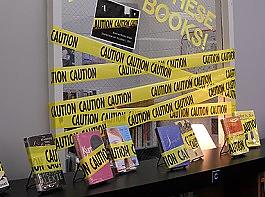In December, a student-led petition sounded the alarm: classroom libraries in Muhlenberg School District were under threat. The controversy began after Middle School English teachers returned from a trip to the National Council of Teachers of English conference with new books to add to their classroom libraries. One of the teachers was informed that he would not be allowed to circulate the books before they were “checked” for inappropriate content.
Since, teachers have been directed to complete an inventory of all books in classroom libraries, including which books contain “material that could be considered to be: Culturally Insensitive, Ethnically Insensitive, Regioulsly [sic] Insensitive, Gender Insensitive, Offensive” or “Violence, Profanity, Sexual Conent [sic].” We wrote a letter expressing our concern over the district’s policies (below), but despite protests, the district and Middle School stubbornly pushed on with their demand to red flag the books by these categories.
Teachers requested a clarification of the broad categories and an extension from the original deadline. The district eventually extended the deadline. Some teachers dismantled their classroom libraries rather than complete the inventory. The district has tried to spin the red flagging requirement as a benign inventory. But a truly beneficial and content neutral inventory would simply ask that teachers supply information about title and author. If more information is needed, a plot description, summary of the book’s educational merit, or professional reviews would be more informative and less biased ways to build a library catalog.
Many students in the Muhlenberg school district do not have the economic wherewithal to seek our and purchase books that might be of interest to them. Without the classroom libraries, which are entirely funded by the Middle School’s teachers, students have said they would read less.
Red flagging books is a growing trend and a major policy concern for NCAC’s Kids’ Right to Read Project.


